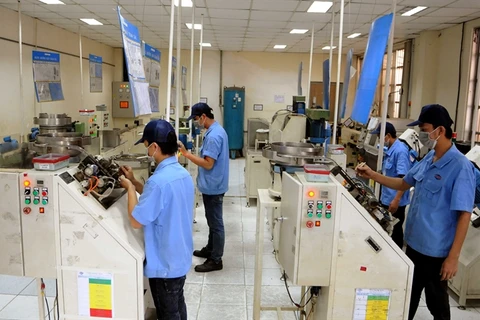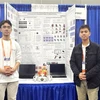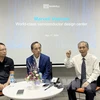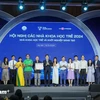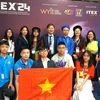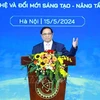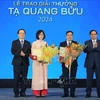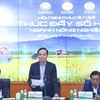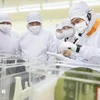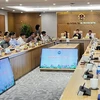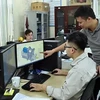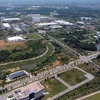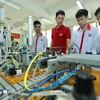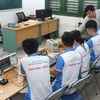 Internet of Things (IoT) will bring a potential turnover of 10 billion USD by 2020 for Vietnam (Photo: congnghe.vn)
Internet of Things (IoT) will bring a potential turnover of 10 billion USD by 2020 for Vietnam (Photo: congnghe.vn)HCM City (VNA) – Vietnam must build a creative and sustainable eco-system for the Internet of Things (IoT) in order to take part in the international IoT supply chain and achieve a turnover of 10 billion USD by 2020, a technology insider has said.
“The IoT will require an eco-system that will decide its success in Vietnam,” Nguyen The Trung, Director of the DDT Technology company told Vietnam Economic Times newspaper.
The IoT is a system of inter-related computing devices, mechanical and digital machines, objects, animals or people that are provided with unique identifiers and the ability to transfer data over a network without requiring human-to-human or human-to-computer interactions.
IoT allows objects to be sensed and controlled remotely across existing network infrastructure, creating opportunities for more direct integration of the physical world into computer-based systems, and resulting in improved efficiency, accuracy and economic benefit.
“The fourth industrial revolution is starting with IoT, Big Data and Robot,” Trung said. “This is a golden chance to boost the Vietnamese IT industry."
But he stressed that a proper working mechanism focusing on important and long-term goals must be set up.
The end-to-end working system, meaning that all parts of a circulation, from ideas to R&D, commercialisation, marketing and investment must be worked together.
To become a regional centre for IoT start-ups, the Government should create a creative eco-system to support small and medium-sized enterprises and start-ups through co-operation with multinational corporations, he said.
“The system should provide incentives to attract international and regional start-ups to join and exploit Vietnamese strengths like human resources and low production costs.”
Other IT experts said: “Along with rolling out incentives and development policies, IoT joint ventures between domestic and multinational enterprises are very important to keep Vietnamese enterprises on track.”
IoT start-up funds and infrastructure for services like 4G and 5G for IoT should be encouraged to be set up.
Huge potential
By 2025 the IoT will contribute 11 trillion USD to the world economy, according to a report by management consultant McKinsey, with factories generating 3.7 trillion USD, cities, 1.7 trillion USD, and healthcare, 1.6 trillion USD.
The report said the number of IoT devices would grow very fast – five times in the next five years from the current 11.8 billion.
By 2019 the world economy would spend 1.3 trillion USD on IoT, it said.
IoT would be present in all aspects of life and even create more new ideas in life and business.
In Vietnam, IoT would be used by in smart agriculture, transport, healthcare, education, city, and digital authority, it said.
“Vietnam should pay attention to network security, digital sovereignty, privacy, integration, investment and maintenance expenditure,” Trung added.-VNA
